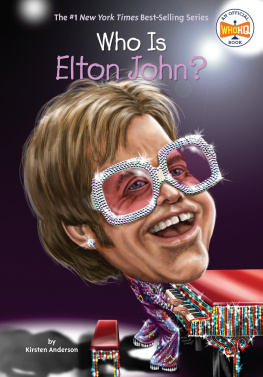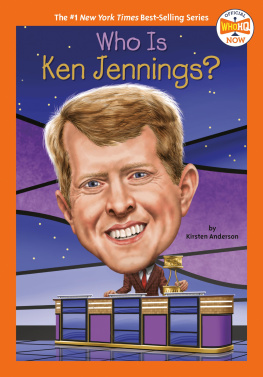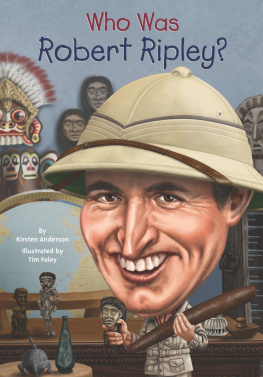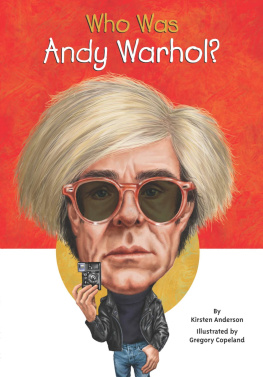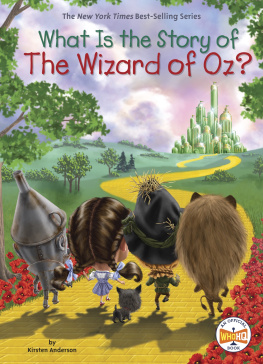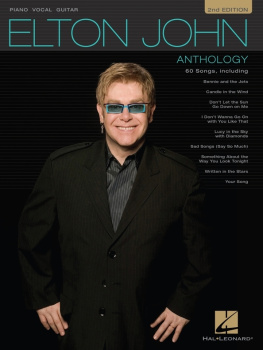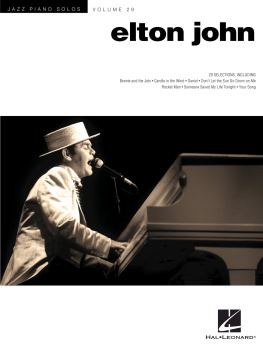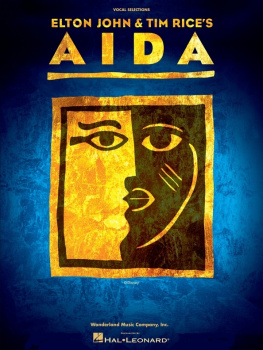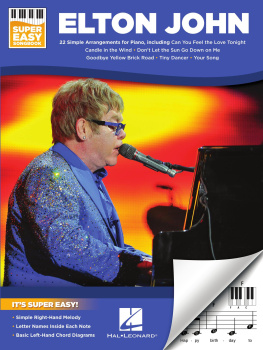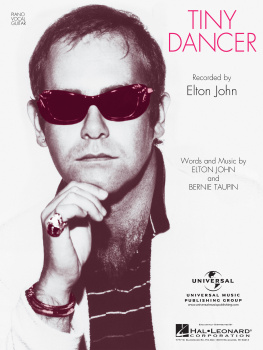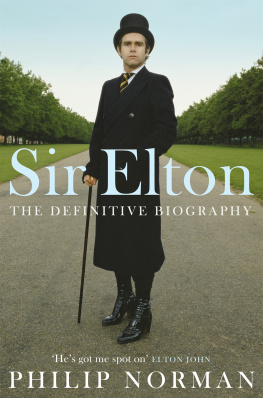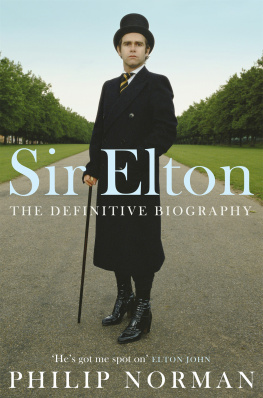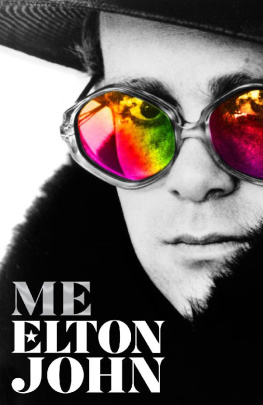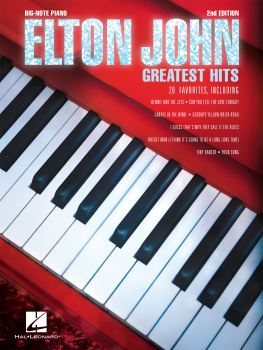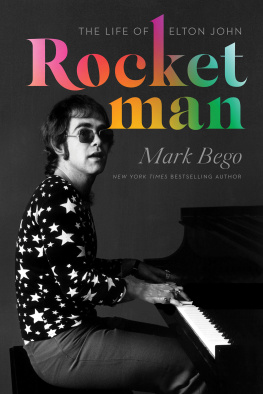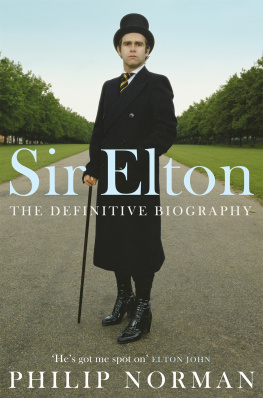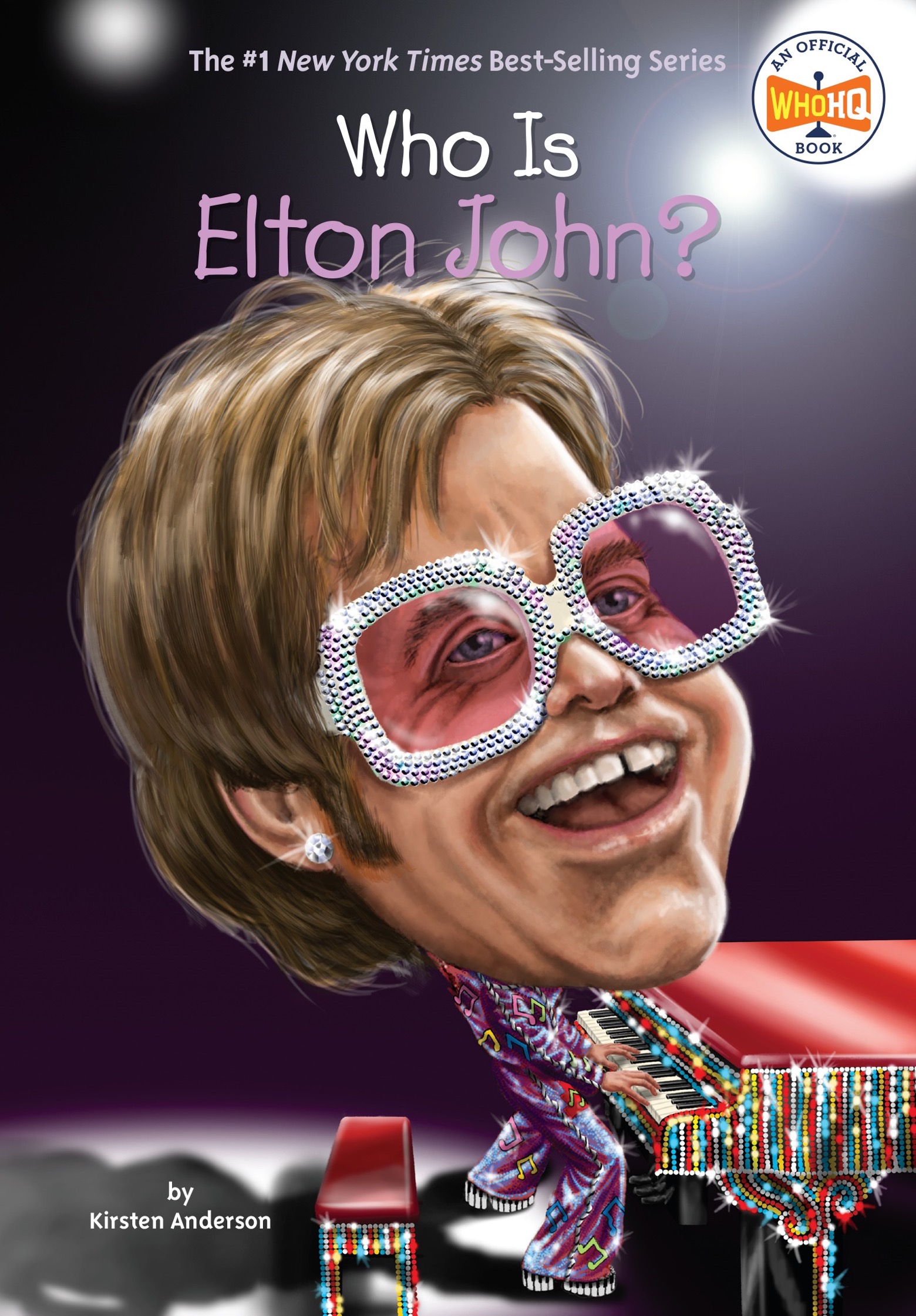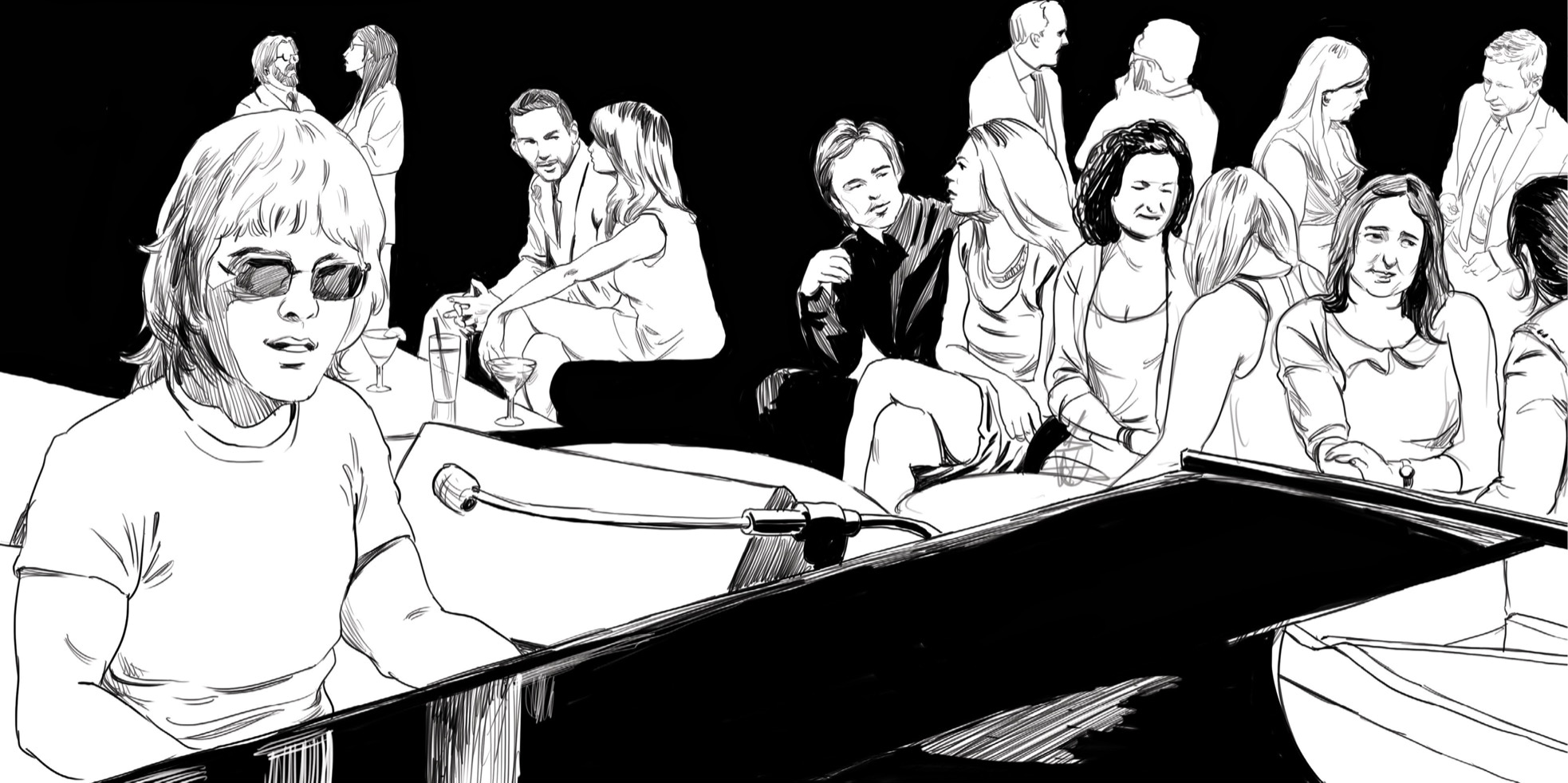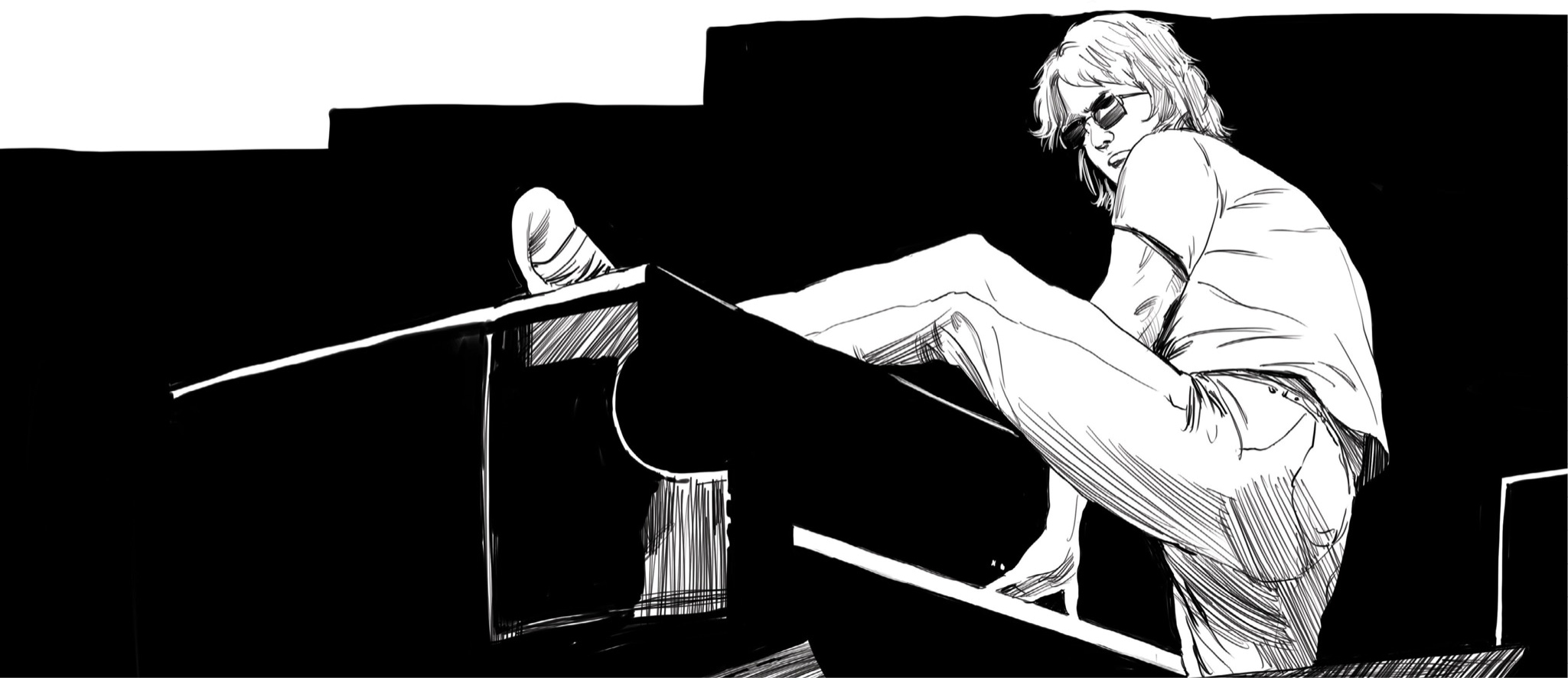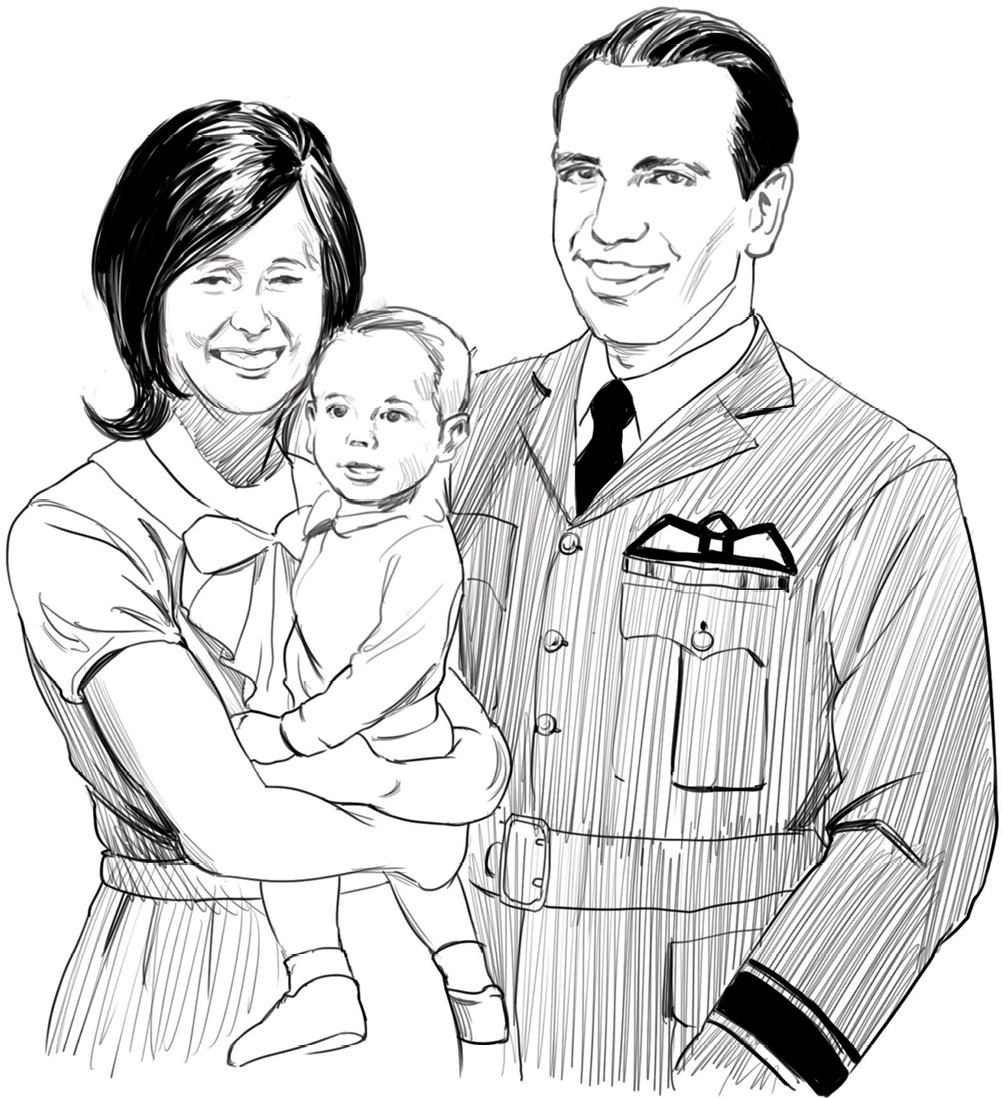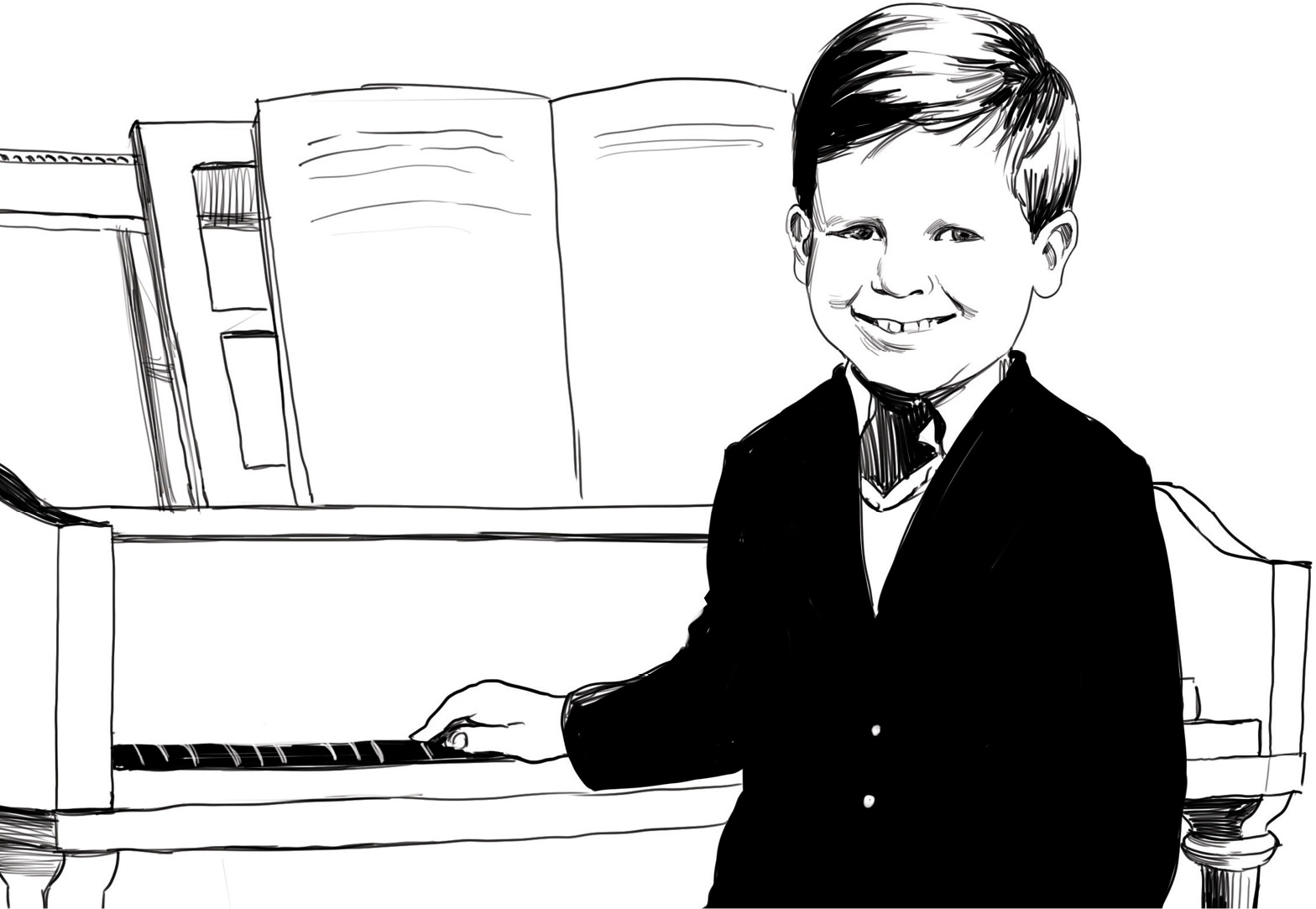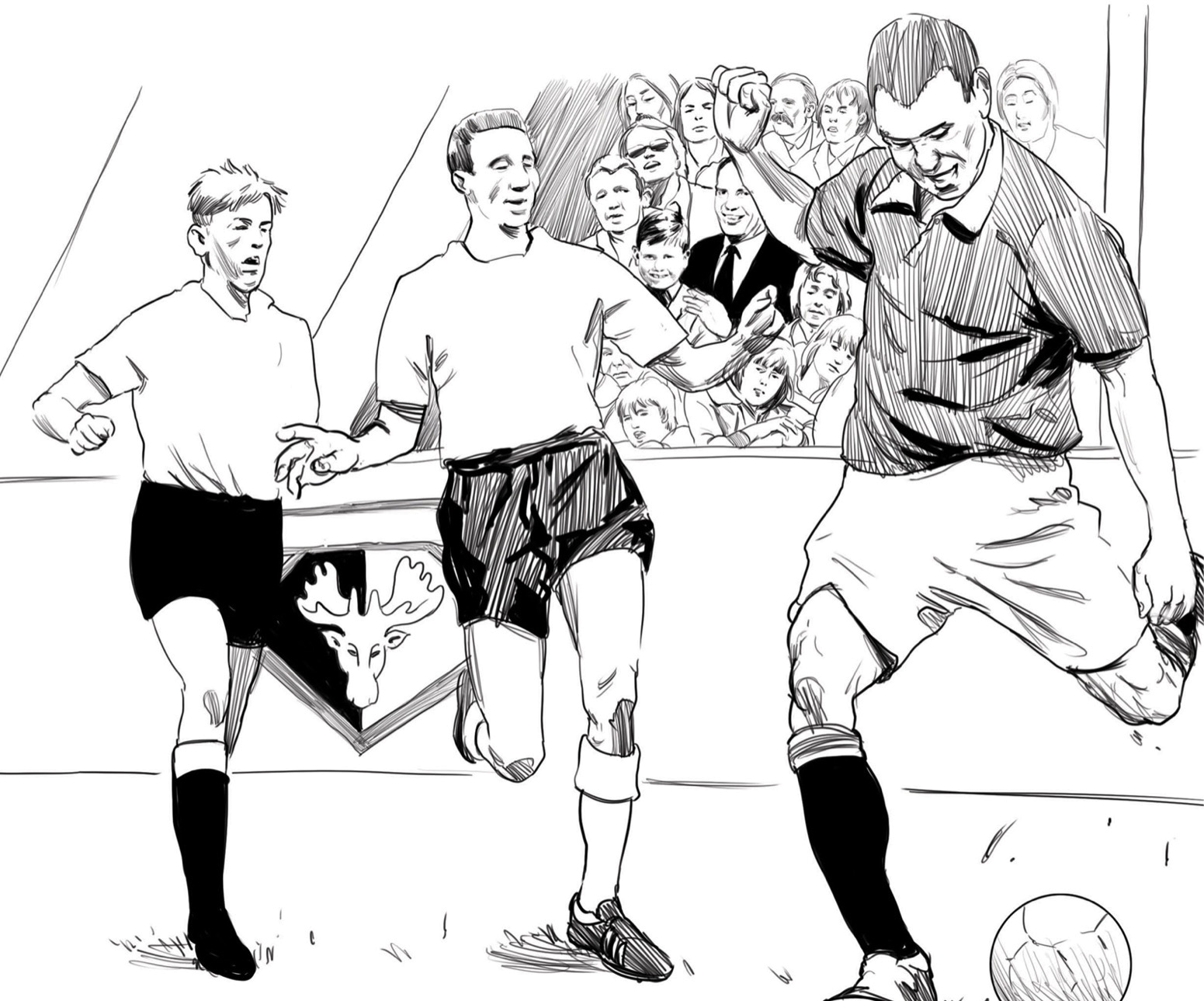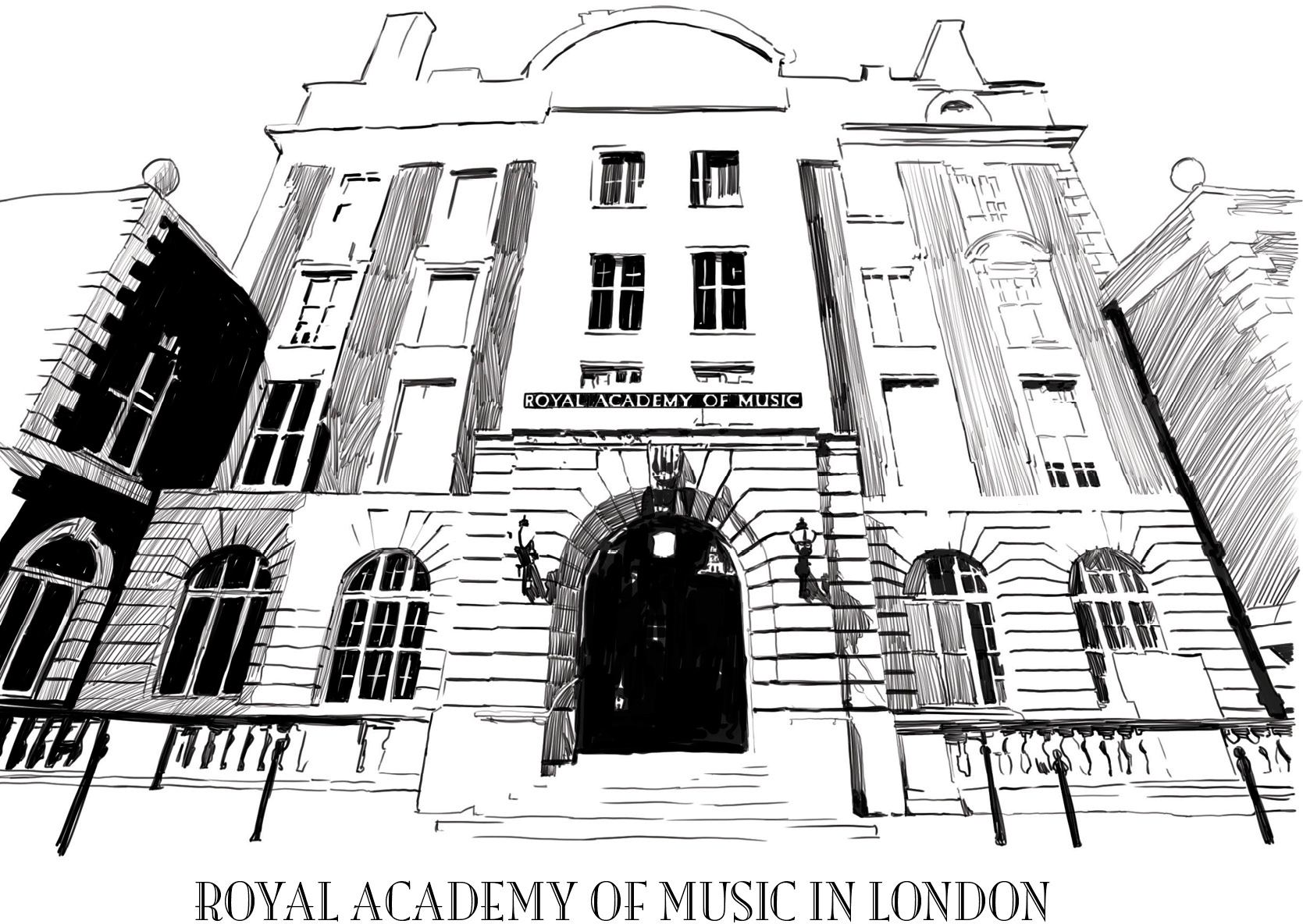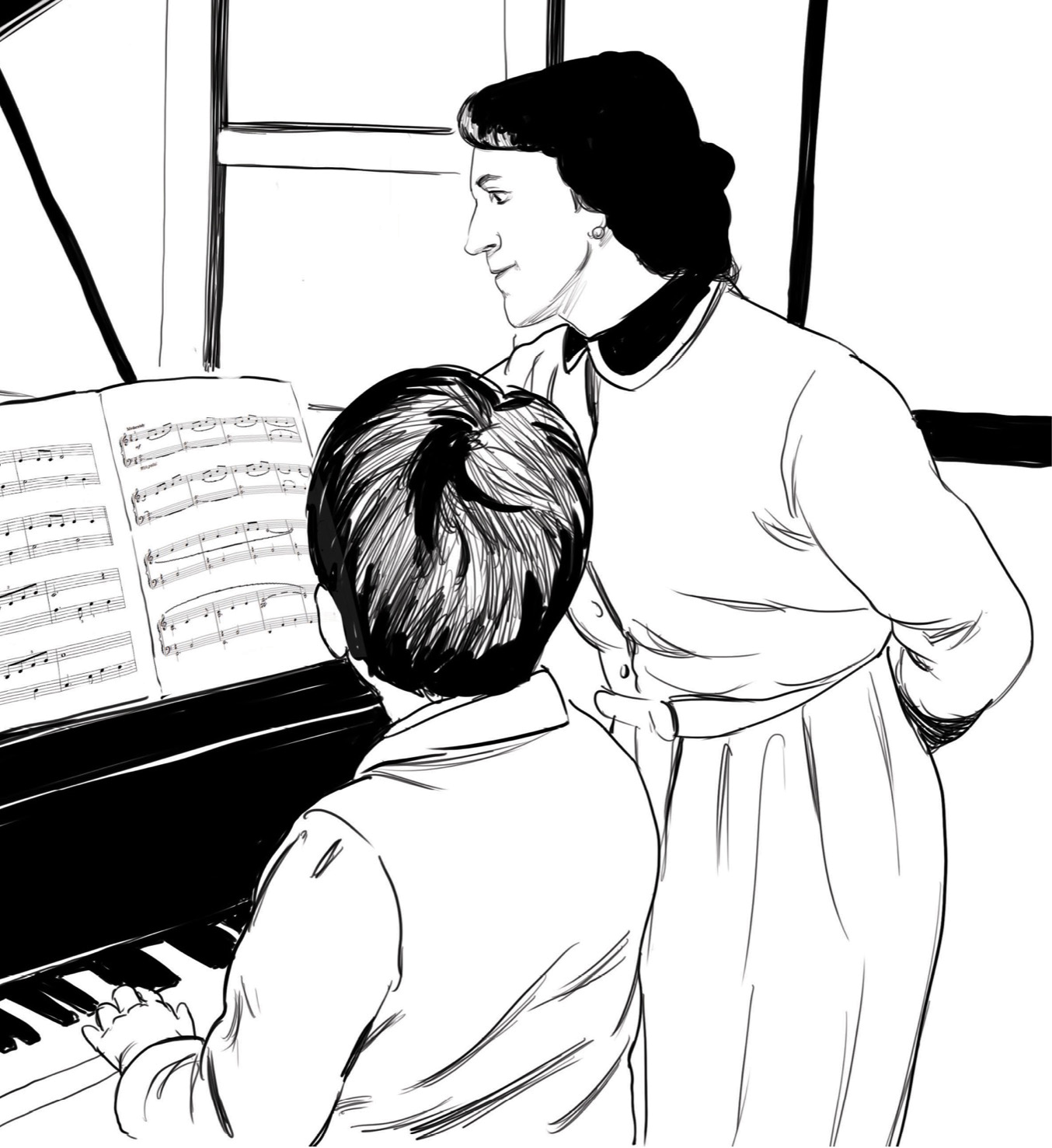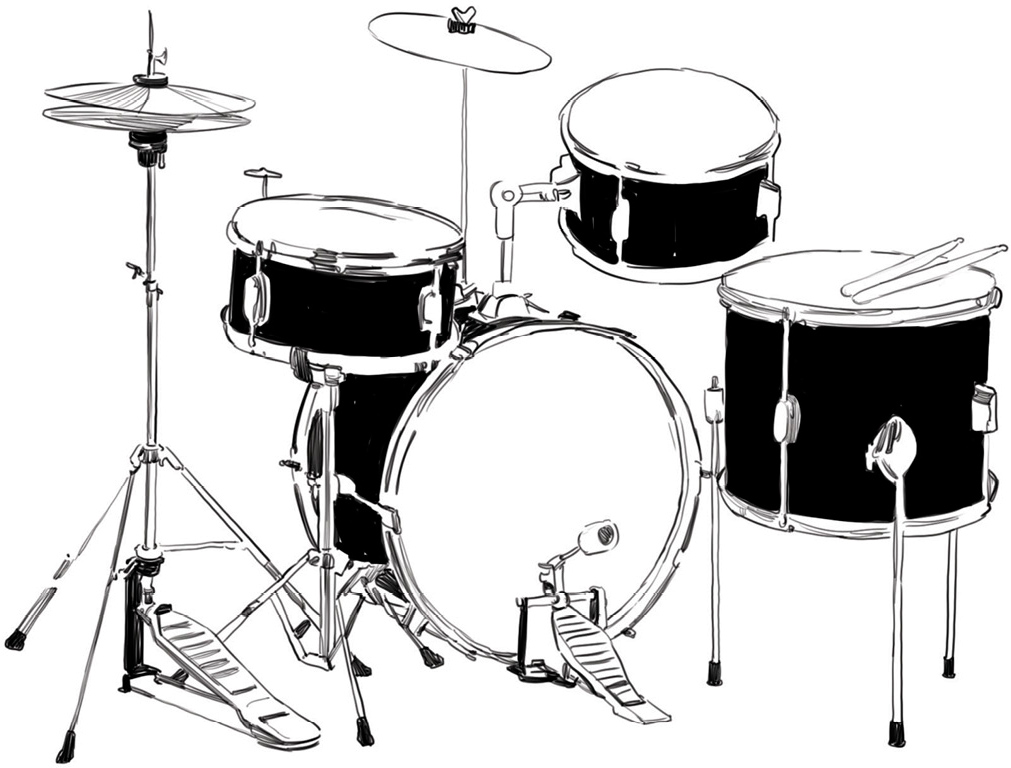Penguin supports copyright. Copyright fuels creativity, encourages diverse voices, promotes free speech, and creates a vibrant culture. Thank you for buying an authorized edition of this book and for complying with copyright laws by not reproducing, scanning, or distributing any part of it in any form without permission. You are supporting writers and allowing Penguin to continue to publish books for every reader.
The publisher does not have any control over and does not assume any responsibility for author or third-party websites or their content.
Text copyright 2016 by Kirsten Anderson. Illustrations copyright 2016 by Penguin Random House LLC. All rights reserved. Published by Penguin Workshop, an imprint of Penguin Random House LLC, New York. PENGUIN and PENGUIN WORKSHOP are trademarks of Penguin Books Ltd. WHO HQ & Design is a registered trademark of Penguin Random House LLC.
Visit us online at www.penguinrandomhouse.com.
Who Is Elton John?
The crowd at the Troubadour club didnt pay much attention to the piano player quietly singing onstage. The twenty-three-year-old singers record company had worked hard to get many important people in the music business to come to the Los Angeles club and hear its new discovery. But on this August night in 1970, most of the audience was much more famous than the man onstage. They talked to one another and looked to see who else would walk in the door. They werent very interested in this plain Englishman who wore glasses. Although he wore a rock-and-roll T-shirt and jeans, he looked more like a salesman than a rock star.
Elton John had thought it was a mistake to come to America. He had been struggling for years in England to get people to pay attention to him. He had written songs for other performers. He had played and sung in bands behind other singers. He had been waiting a long time for his big break. And now it seemed as if no one would ever notice him.
Suddenly, he had had enough. All the frustration from his years of being stuck in the background boiled over. He jumped up, kicked over his piano stool, and shouted, If you wont listen, perhaps youll bloody well listen to this.
He started playing again, standing at the piano. But this time he pounded away at the keys. He sang loudly and confidently. It was the way he had pictured himself performing when he was a little boy in England, listening to American rock and roll on the radio.
And the audience paid attention. They heard blues, gospel, rock, and country music. Each song told its own fantastic story. Everyone knew they were hearing something special.
By the end of the night, there was a line of people waiting to get backstage to meet Elton. After years of hard work, Elton John had become an overnight success.
Chapter 1
Piano Boy
Reginald Kenneth Dwight was born in Pinner, a suburb of London, on March 25, 1947. His parents were Stanley and Sheila Dwight. Stanley was an officer in the Royal Air Force. He was a very strict and serious man. Stanley was often away from Pinner, traveling around the world for the Royal Air Force. Reggie was mostly raised by his cheerful, fun-loving mother and her family.
Sheila always had music playing in the house. One day, when Reggie was just a toddler, he climbed onto the piano bench and played a song he had heard on the radio. Young Reggie could play other songs, too, just by listening to them. He began to take piano lessons with a teacher in Pinner when he was seven.
Stanley Dwight cared about other things. He wanted Reggie to be neat, polite, and obedient, like the soldiers he commanded. Reggie tried to please his father as much as he could, but Stanley made him nervous.
Reggie only felt comfortable with Stanley at football matches. Football is what people outside of the United States call soccer. Football fans in Britain are very devoted to their teams, and football matches are always big news. Reggie was a huge fan of his local team, Watford Football Club. Stanley and Reggie went to see them play whenever they could.
When Reggie was eleven, he was accepted into a program at the Royal Academy of Music. Every Saturday he took the train to London for his lessons. He studied classical music by composers from the eighteenth and nineteenth centuries, such as Bach, Mozart, and Beethoven.
Reggie practiced all the classical pieces his teachers gave him, but his heart wasnt in them. He was much more interested in the new rock-and-roll music that became popular in the 1950s. Stanley hated it. But Sheila bought Elvis Presley records and played them when Stanley wasnt home.
Reggies favorite rock stars were Little Richard and Jerry Lee Lewis. They didnt sit on a piano bench calmly playing. They jumped up, kicked the bench over, and pounded the keyboard until the piano shook. Reggie dreamed of being up onstage, playing and singing just like them.
It would have been hard for anyone to imagine that. Adults thought Reggie was a quiet child with excellent manners. Kids didnt notice him much. He was just that shy, chubby boy who always seemed to be on his way to a piano lesson.
GIMME A BEAT
WHAT MADE ROCK AND ROLL DIFFERENT THAN THE MUSIC YOUNG PEOPLE LISTENED TO AND DANCED TO IN THE 1920S, 30S, AND 40S? BORN FROM GOSPEL MUSIC AND RHYTHM AND BLUES POPULAR IN AFRICAN AMERICAN COMMUNITIES, ROCK AND ROLL WAS PLAYED LOUDER AND FASTER THAN OTHER FORMS OF POPULAR MUSIC.
ONE OF THE BIGGEST DIFFERENCES WAS THE BEAT. MOST POPULAR MUSIC BEFORE THE 1950S SOUNDED LIKE THIS: DA DA DA DA . ITS A VERY CALM, EVEN BEAT. BUT ROCK MUSIC WENT LIKE THIS: DA DA DA DA DA DA. ITS FASTER AND COOLER, EVEN WHEN SPOKEN. ROCK AND ROLL: ITS ALL ABOUT THE BEAT.

